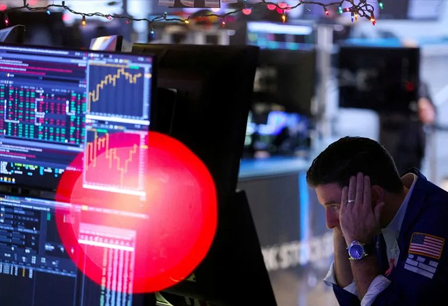Warnings of recession are widespread, inflation is still elevated and so are interest rates. Russia continues to wage war in Ukraine and markets are whipsawing around as investors try to make sense of it all. In short: The global macroeconomic picture is bleak.
In spite of it all, dealmaking on Wall Street appears to be making a comeback. There have been 39 US initial public offerings (IPOs) priced so far this year, according to data from IPO research firm Renaissance Capital, a 77% increase from the same period in 2022.
So why is this happening? The banking crisis caused by the recent collapse of Silicon Valley Bank and Signature Bank could be the cause.
Regional banking turmoil has led to tighter credit conditions, which could push some companies to go public, said Barrett Daniels, US IPO co-leader at Deloitte. Without access to loans from banks and private equity, companies need to get money somewhere. Selling shares to investors is a way to do that.
“It’s all on the table right now,” said Daniels. “Nobody wants to see a bunch of companies going out of business.”
The recent boost in activity is unusual. Dealmaking typically booms when markets are stable and businesses feel good. When the economy swoons, companies like to rein in public offerings and takeover activity.
Case in point: The IPO market went from boom to bust in 2022 — global IPO activity was cut nearly in half and things were even worse in the United States, where 149 IPOs launched compared to 908 in 2021. Over the same period, the S&P 500 fell by more than 18%.
Now, a wave of optimism is washing over the market. “Despite the unforgiving economic and geopolitical backdrop, there is light on the horizon with peaking inflation, energy prices softening and the rebound of mainland China’s economy,” wrote EY analysts in a note.
A lot of companies hit pause on plans to go public last year, hoping to make their market debut during more bullish times, said Daniels.
The IPO pipeline is full. Daniels has said previously that there are more than 1,000 companies worth over $1 billion that are prepared to go public, but are waiting for the economy to clear up first. That may happen sooner rather than later, he said.
“It seems like there’s a consensus that the fourth quarter [of 2023] is a starting point for an IPO market recovery,” Daniels said. “When it does open up, it’s going to be gangbusters.”
A few successful offerings could be all it takes to turn the stream from a drizzle into a full on deluge, he said.
That’s why investors are closely watching Johnson & Johnson (JNJ)’s spinoff of its consumer business, Kenvue.
Kenvue will house a portfolio of household brands like Tylenol, Band-Aid, Aveeno, Neutrogena, Listerine and Johnson’s. In a filing on Monday, the company said it plans to price shares at $20 to $23 in an IPO later this year. The spinoff would be valued at around $40 billion, making it the largest offering so far this year.
It’s not just IPOs. Mergers and acquisitions in the healthcare industry have totaled more than $119.6 billion so far this year, that’s up 62% from this time a year ago, according to data from Refinitiv. Globally, follow-on offers (when a company issues more shares to raise extra capital) are up about 22% compared to last year.
IPOs and M&A activity mean big money for financial firms that earn significant fees for facilitating these transactions. Increased activity means bigger bonuses and a stronger financial sector.
First Republic Bank to slash up to a quarter of its workforce
First Republic Bank expects to cut its workforce by as much as 25% this quarter, the embattled lender said late Monday.
The announcement comes as First Republic reported that its total deposits fell 41% in the first quarter, to $104.5 billion, even after a consortium of banks stepped in with $30 billion to prevent the regional lender from failing. Without that cash infusion, deposits would have fallen by over 50%.
Analysts were expecting deposits to land at around $136.7 billion.
The bank said it saw a sharp loss of deposits after the collapse of Silicon Valley Bank and Signature Bank last month, but outflows began to stabilize at the end of March.
“We experienced unprecedented deposit outflows,” said CEO Michael Roffler on an earnings call Monday. But deposit activity has evened out since the end of March, he added. “Total deposits were $102.7 billion as of April 21, 2023, down only 1.7% from March 31, 2023,” he said. That small drop, he added, likely reflected regular seasonal client tax payments.
The call lasted about 13 minutes and Roffler did not take any questions from investors or the media.
San Francisco-based First Republic also reported that year-over-year revenues were down 13.4%. Net interest income, the money a bank makes from charging interest on the loans it gives out minus the interest it has to pay to depositors and other lenders, was down 19.4%.
The bank reported earnings per share of $1.23, higher than analysts’ expectations of $0.85 per share, according to Refinitiv data.
First Republic also said in its earnings release on Monday that it was “taking actions to strengthen its business and restructure its balance sheet.”
Those actions include efforts to increase insured deposits.
But that didn’t seem to be enough: Shares of First Republic sank more than 21% in after hours trading after the earnings announcement, having closed up 12%.
It’s not just First Republic
Credit Suisse bled customer deposits worth 67 billion Swiss francs ($75.2 billion) in the first three months of the year, and money is still leaving the bank as UBS races to complete a rescue of its stricken rival, reports my colleague Hanna Ziady.
The bank run was “most acute” in the days just before and just after the announcement of the takeover by UBS on March 19, Credit Suisse said in a statement Monday. Outflows have since “stabilized to much lower levels, but had not yet reversed as of April 24, 2023,” the bank added.
Customers withdrew 111 billion francs ($121 billion) in the final three months of 2022, when the bank was hit by social media speculation that it was on the brink of collapse. The failure of Silicon Valley Bank and Signature Bank in America months later drove a fresh wave of asset flight as investors and clients sought safer havens.












